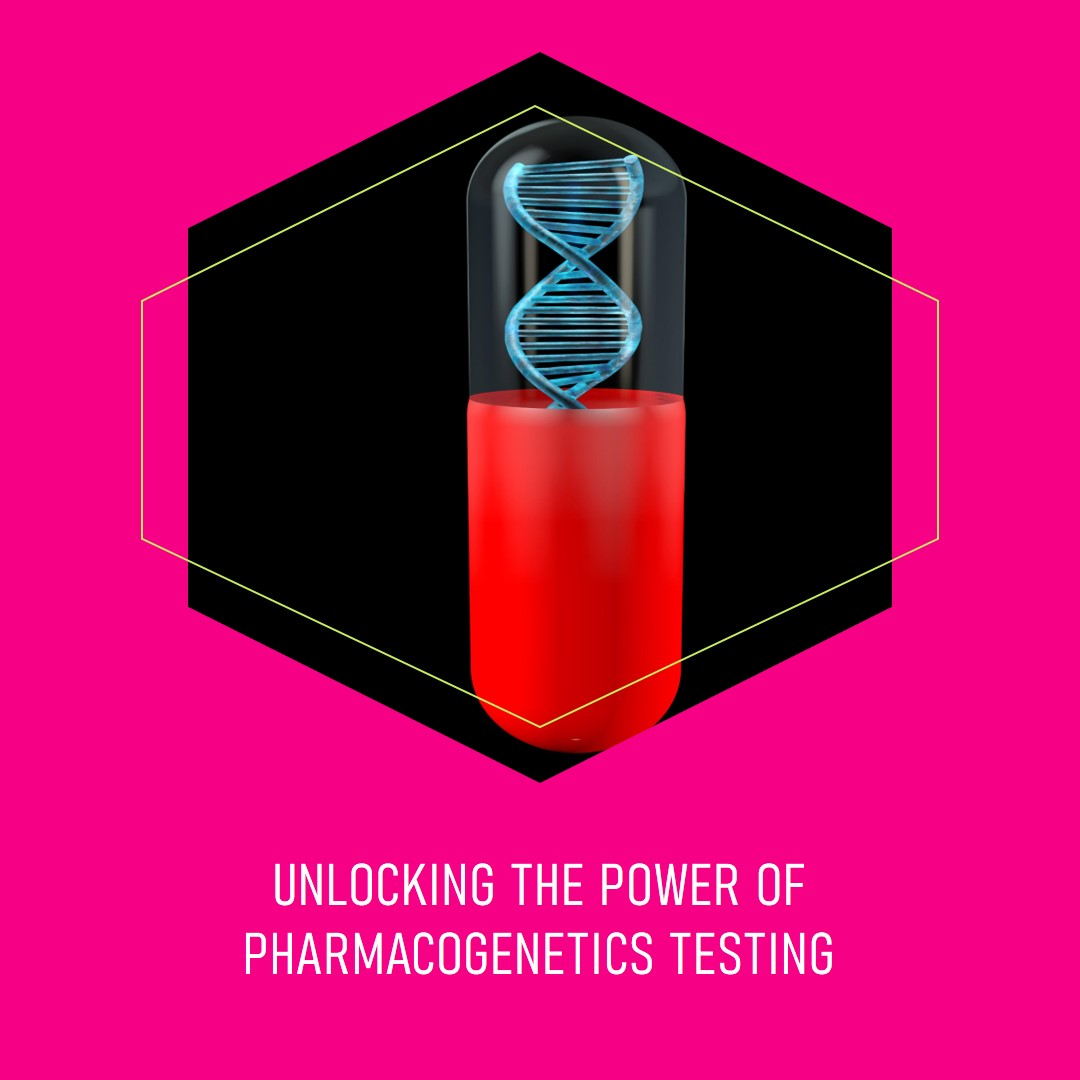Managing chronic conditions is a complex and ongoing challenge in healthcare. Traditional approaches often rely on a trial-and-error method, where patients try different medications until they find one that works. However, this can lead to prolonged suffering, adverse drug reactions, and suboptimal treatment outcomes. Enter pharmacogenetics testing—a revolutionary approach that leverages genetic information to tailor drug therapies to individual patients. This personalized approach not only enhances treatment efficacy but also minimizes side effects, making it a game-changer in managing chronic conditions.
Understanding Pharmacogenetics Testing
Pharmacogenetics is the study of how an individual’s genetic makeup influences their response to drugs. It involves analyzing specific genes that affect drug metabolism, efficacy, and safety. The goal is to identify genetic variations that may influence how a patient processes or responds to a particular medication. By doing so, healthcare providers can prescribe the most effective drug at the right dose, reducing the risk of adverse reactions and improving overall treatment outcomes.
The Growing Need for Pharmacogenetics Testing in Chronic Conditions
Chronic conditions such as cardiovascular diseases, diabetes, depression, and chronic pain are prevalent worldwide. These conditions often require long-term medication, making it crucial to find the most effective and safest treatment for each patient. According to the Centers for Disease Control and Prevention (CDC), six in ten adults in the United States have a chronic disease, and four in ten have two or more. This growing burden on healthcare systems underscores the need for more personalized approaches to treatment, and pharmacogenetic testing offers a viable solution.
Benefits of Pharmacogenetic Testing in Managing Chronic Conditions
1. Personalized Medication Selection
One of the most significant advantages of pharmacogenetic testing is its ability to personalize medication selection. For example, patients with chronic conditions like depression often undergo a lengthy process of trying multiple antidepressants before finding one that works. Pharmacogenetic testing can identify which medications are more likely to be effective based on a patient’s genetic profile, significantly reducing trial-and-error periods.
2. Reduced Adverse Drug Reactions
Adverse drug reactions (ADRs) are a major concern in chronic disease management, often leading to hospitalizations and even death. A study published in the Journal of the American Medical Association (JAMA) found that over 100,000 deaths occur annually in the U.S. due to ADRs. Pharmacogenetic testing helps minimize these risks by identifying genetic factors that may predispose a patient to adverse reactions, allowing healthcare providers to avoid potentially harmful medications.
3. Optimized Drug Dosage
Finding the right dosage is another challenge in treating chronic conditions. Genetic variations can affect how quickly or slowly a patient metabolizes a drug, influencing its efficacy and safety. Pharmacogenetic testing provides insights into these variations, enabling healthcare providers to tailor drug dosages to the patient’s unique genetic makeup. This personalized approach reduces the risk of under- or overdosing, improving treatment outcomes.
4. Improved Medication Adherence
Medication adherence is a critical factor in managing chronic conditions. However, patients are more likely to skip doses or discontinue treatment if they experience side effects or perceive the medication as ineffective. Pharmacogenetic testing increases the likelihood of finding the right medication from the start, which can enhance patient satisfaction and adherence to prescribed treatments.
5. Cost-Effective Treatment
While pharmacogenetic testing may seem expensive initially, it can lead to significant cost savings in the long run. By reducing the need for multiple doctor visits, hospitalizations due to ADRs, and ineffective treatments, pharmacogenetic testing can lower healthcare costs. Moreover, the improved efficiency of personalized treatment can lead to faster recovery times and better quality of life for patients, further reducing the financial burden on healthcare systems.
Real-World Applications of Pharmacogenetic Testing
Pharmacogenetic testing is already making a difference in the management of various chronic conditions. For instance, in cardiovascular disease management, pharmacogenetic testing can guide the selection of anticoagulants, ensuring that patients receive the most effective and safest medication. In psychiatry, genetic testing is being used to tailor antidepressant therapies, improving outcomes for patients with depression and anxiety disorders.
A noteworthy example is the use of pharmacogenetic testing in managing chronic pain. Opioid medications, commonly prescribed for chronic pain, have a high potential for addiction and adverse effects. Pharmacogenetic testing can help identify patients who are more likely to benefit from certain opioids while avoiding those who may be at higher risk of addiction or adverse reactions.
Challenges and Considerations in Pharmacogenetics Testing
Despite its benefits, pharmacogenetic testing is not without challenges. One of the primary concerns is the accessibility of testing, as it is not yet widely available or covered by all insurance plans. Additionally, the interpretation of genetic data requires specialized knowledge, and there is a need for more education and training among healthcare providers to fully utilize this technology.
Ethical considerations also play a role, particularly concerning patient privacy and the potential misuse of genetic information. It is crucial to establish clear guidelines and regulations to protect patients’ genetic data and ensure that it is used solely for their benefit.
Avant’s Role in Pharmacogenetics Testing
Avant, a leader in healthcare innovation, is at the forefront of integrating pharmacogenetic testing into routine clinical practice. By providing cutting-edge genetic testing services and collaborating with healthcare providers, Avant aims to make personalized medicine accessible to more patients. Their commitment to advancing pharmacogenetic testing is helping to revolutionize the way chronic conditions are managed, ultimately improving patient outcomes and quality of life.
Conclusion
Pharmacogenetics testing represents a significant advancement in the management of chronic conditions. By personalizing medication selection, reducing adverse drug reactions, optimizing drug dosages, and improving medication adherence, this innovative approach offers numerous benefits for patients and healthcare providers alike. As the field continues to evolve, it is essential to address the challenges and ensure that pharmacogenetics testing becomes an integral part of chronic disease management.
FAQs
- What is pharmacogenetics testing?
- Pharmacogenetic testing analyzes an individual’s genetic makeup to determine how they will respond to specific medications. This information helps healthcare providers personalize drug therapies for better efficacy and safety.
- How does pharmacogenetic testing benefit patients with chronic conditions?
- Pharmacogenetic testing helps identify the most effective medications and dosages for individual patients, reducing trial-and-error periods, minimizing adverse drug reactions, and improving overall treatment outcomes.
- Is pharmacogenetic testing widely available?
- While pharmacogenetic testing is becoming more accessible, it is not yet universally available and may not be covered by all insurance plans. However, its adoption is growing as more healthcare providers recognize its benefits.
- Can pharmacogenetic testing reduce healthcare costs?
- Yes, by optimizing treatment plans and reducing the need for multiple doctor visits and hospitalizations, pharmacogenetics testing can lead to significant cost savings in the long run.
Wrap-Up
As pharmacogenetics testing continues to evolve, its potential to transform chronic condition management becomes increasingly clear. Could personalized medicine be the key to unlocking more effective treatments for chronic conditions?
Also know about What Conditions Are Commonly Treated by Compounding Pharmacy in Charlotte, NC?




